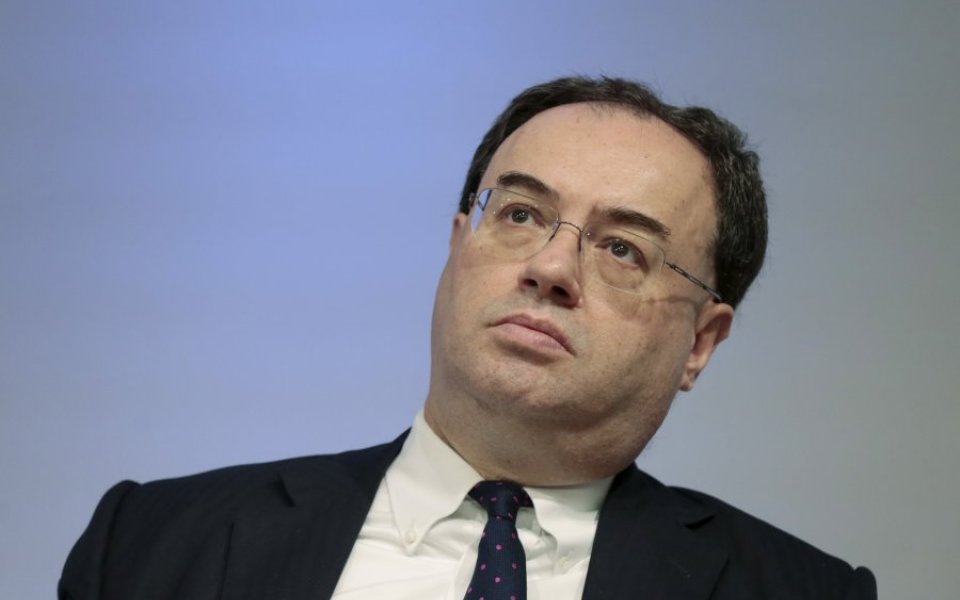Time to give challengers a fair chance: Top City regulator urged to increase competition among banks

The City's top regulator is being urged by to “do whatever is required” to increase competition in the banking sector by reducing entry barriers for challenger banks.
Treasury Select Committee chairman Andrew Tyrie revealed today that he has written to Andrew Bailey, deputy governor at the Bank of England, asking for the prudential regulation authority (PRA) to disclose how much more money challenger banks have to hold compared to larger competitors.
Challenger banks have long argued that they unfairly face steeper capital requirements than larger lenders, in part because they do not have enough capacity or resources to use the so-called internal ratings-based (IRB) approach to calculating credit risk.
The PRA does not disclose the required capital ratios of individual banks, but Tyrie asked Bailey last week to “provide an average of the required capital ratios of the incumbent banks in contrast to new entrants”, saying: “This would help parliament and the public to quantify the competitive disadvantage under which new banks have to operate.”
A Bank of England spokesperson confirmed that the PRA had received Tyrie’s letter and “will respond directly in due course”.
Bailey said last autumn that the PRA would “work closely with the European authorities” to move way from a “one size fits all” regulatory regime that disadvantages smaller lenders.
“Rules that are more proportionate, are more likely to enable banks of different size and business model to compete on an equal footing across the EU than an approach which applied the same rules,” he said. “This is an important issue and one that matters if we are to have growing new entrants and viable challenger banks.”
The government and regulators have come under increased pressure to boost competition in British banking in recent months, especially after chancellor George Osborne introduced a new tax at the summer Budget which will take an additional eight per cent of banks’ annual profits, on top of the existing corporation tax. The new surcharge, set to go into effect this year, will apply to challenger banks and building societies currently exempt from the existing bank levy.
“The PRA has a competition objective – it should be guided by it,” Tyrie said today, adding that millions “have been getting a poor deal for decades because of inadequate competition and choice in banking”.
“They will continue to do so, unless the PRA and the FCA supported, where necessary, by the government, do whatever is required to reduce barriers to entry in the banking market to a reasonable level,” he said.
Secure Trust chief executive Paul Lynam, who heads the British Bankers’ Association challenger banks panel, told City A.M. he welcomed Tyrie’s letter, saying: “The Too Big To Fail banks utterly dominate UK banking primarily because they have unassailable advantages in funding and capital terms.”
“Without far-reaching solutions to the funding and capital inequities, small banks will remain restricted to a narrow part of the market which is underserved by the larger banks,” Lynam added.
Rishi Khosla, chief executive of OakNorth, agreed, telling City A.M. Tyrie’s letter was a “positive step”, as he believed the “actual” capital requirement for most challenger banks “ends up in the teens to 20 per cent” compared to “single-digits” for incumbent institutions.
Tyrie’s letter comes as the PRA gets ready to launch its own “bank start-up unit” in an attempt to help new lenders secure licenses. On Wednesday, Bailey is expected to unveil new details about reforming the bank licensing process.
Anne Boden, chief executive of Starling Bank, which applied for a licence at the end of last year, told City A.M. the unit would mark an “improvement”, but added: “It’s still very important that the hurdles for being a bank are of the right level. We are looking after people's money. It’s very important that we have the right processes and procedures in place to protect people's financial livelihoods.”